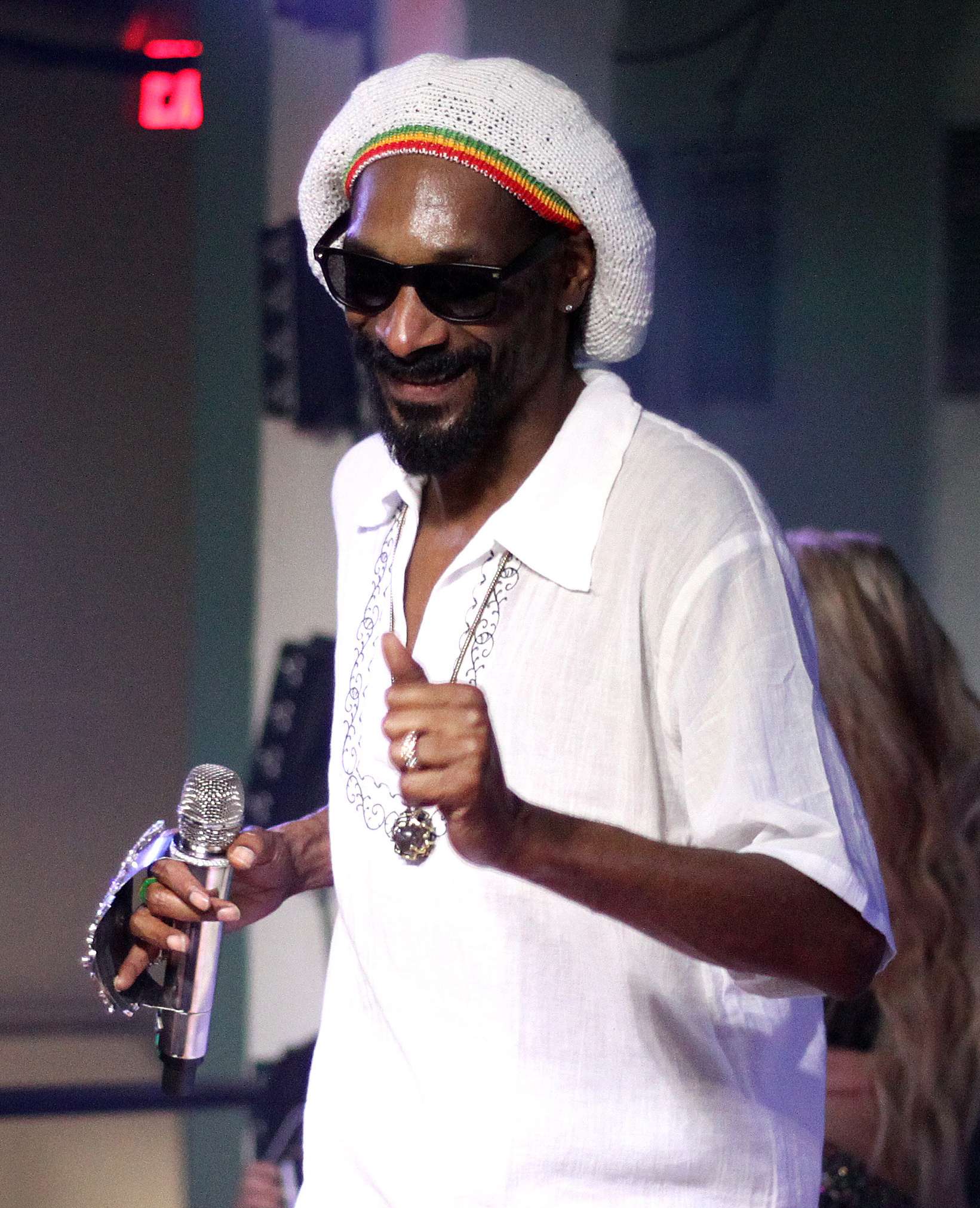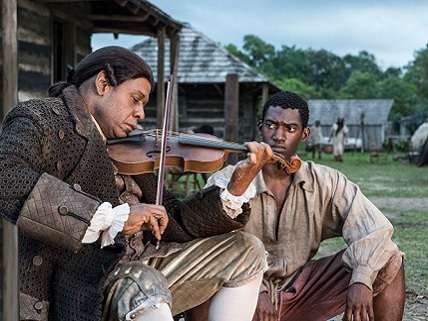Snoop Dogg Didn't Watch the New Roots Miniseries. What About You?
The rapper makes a passionate, NSFW case against the classic. He's really on to something.

[Edited for clarity.]
Last night, just as the first episode of the new version of Roots was hitting the History channel, rapper Snoop Dogg took to Instagram to denounce the show with a passionate, expletive-rich, NSFW rant on his Instagram feed.
"I'm sick of this shit. How the f— are they going to put Roots on, on Memorial Day?" Snoop said in an Instagram video. "They going to just keep beating that shit into our heads about how they did us, huh?"
The History Channel revival is a four-part, eight-hour series that debuts Monday.
Snoop said he has no interest in new shows and movies — specifically mentioning 12 Years a Slave — that "keep showing the abuse we took hundreds and hundreds of years ago."
"I ain't watching that shit, and I advise you motherf—ers as real n— like myself; f— them television shows," Snoop said. "Let's create our own shit based on today, how we live and how we inspire people today. Black is what's real. F— that old shit."
As it happens, I wrote a piece for The Daily Beast about Roots that covers related ground. The original 1976 book and 1977 miniseries were massive cultural events in their time, with the latter drawing a record-breaking audience and the former spending forever on the best-seller lists. Roots on TV represented the first time that the horrors of slavery, Reconstruction, and (eventually, in a follow-up series) Jim Crow were represented from a specifically black POV in a mass medium. While controversy swirled over the facticity and authorship of the book, chunks of which were revealed to have been plagiarized from a 1967 novel, Roots "dared to define the black experience, including the immense indignities of slavery, sharecropping, and Jim Crow not as something separate from the American experience but as its very essence."

In placing the experience of a marginalized group at or near the center of our national identity,
Roots is reminiscent of other texts from the late 1960s and early 1970s. For instance, Mario Puzo's 1969 novel The Godfather, along with the two movies made from it in 1972 and 1974, audaciously recast the rise of the Mafia as every bit the immigrant success story as Ben Franklin's journey from indentured servitude in Boston to freedom and fame in Philadelphia. The percentage of the U.S. population that was foreign born hit a historic low of 4.7 percent in 1970, which had the counterintuitive effect of allowing second- and third-generation Americans to begin asserting ethnic pride in ways that would have been unthinkable even a few decades earlier due to lingering mistrust and resentment of foreigners (there's a reason Dino Crocetti rechristened himself Dean Martin and, later still, Allan Konigsberg became Woody Allen).
But as the cultural critic Leslie Fiedler wrote in 1982—and in this, I think he anticipates Snoop Dogg's angry reaction—Haley didn't so much as create a new script of possibilities for America as flip the one that was already evident in much-earlier works.
Fiedler notes that Roots, despite Haley's attempt to write a "final Happy Ending" in which African Americans become professors and government functionaries and world-famous authors, replicates the same irresolvable racial tensions that fueled earlier novels such as Uncle Tom's Cabin, Thomas Dixon's The Clansman (which became the basis on D.W. Griffith's execrable The Birth of a Nation), and Gone With The Wind. "Scenes of rape and flagellation are as essential to [Haley's] vision as to that of Mrs. Stowe or Thomas Dixon, or Margaret Mitchell, though his victims are, of course, always black," writes Fiedler.
Though the brutalization of his ancestors, especially at the hands of slave owners, means that Haley is himself part white, he cannot acknowledge that part of his ancestry. Try as he might, Fiedler argues, Haley doesn't offer a way out of an unbridgeable gap between the races. Instead, he describes the lurid, racist fantasies from the victims' point of view.
Haley's accomplishment in Roots is no small thing. Specifically, it not only gave a mythic origin story for black America, it also forced white America to understand the brutality of the slave system in a new way. This, even as it signaled solidarity with white ethnics who themselves were exploring their own histories of overcoming marginalization as immigrants in America.
Yet for all the problems tied to race that still exist in America, it's also true that things are objectively better for blacks (and whites) and, more pressing, we are finally moving past the dualistic racial categories that marked some of our ancestors as free and others as slaves. As we become more truly multi-ethnic, we need culture that explores those possibilities, not so that we forget the past but so that we can finally move on from it.


Show Comments (83)